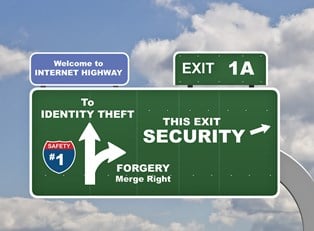Identity Theft Is More Common Than You Think
The Federal Trade Commission has a branch called the Consumer Sentinel Network, that collects complaints about fraud and identity theft from the FTC, the FBI, the Secret Service, and a host of other government entities. They compile those into a huge document every year, detailing how many complaints they receive directly, and how many cases there are in general. The results are staggering.
In 2015, there was a total of 490,220 identity theft complaints made. In previous years, the most commonly reported types of identity theft had to do with government documents/benefits fraud, followed by credit card fraud. But in 2015, tax- and wage-related fraud increased to make up 45% of all identity theft complaints. (We'll talk more about tax-related identity theft on the next page.) All in all, identity theft affected 17.6 million people in 2014 and seems to consistently affect around 7% of American households every year.
Beyond that, more than a quarter of all Americans have been victims of credit/debit card fraud specifically. (That astronomical percentage is partially due to security weaknesses unique to American credit and debit cards, and we will also talk more about that on a later page.) And while most people report resolving the matter in a fairly satisfactory way, an "unsatisfactory" resolution can be pretty catastrophic when the issue is your credit card information.
Did you know...
- Do you know what the lifespan of U.S. currency is? The higher the denomination, the longer it stays in circulation. Both $50 and $100 bills last 9 years. The $20 sticks around for 4 years. $10 bills circulate for 3 years. The $5 bill has a 2-year lifespan, and the $1 bill only lasts around 18 months before being retired. Coins last around 30 years.
- Want a money saving tip? Ditch credit and debit cards, and stick to carrying around cash. Studies show people spend between 12 – 18% more when using a plastic card as opposed to when paying for things in cash. If you physically have to dole it out, you’re much more aware that you are spending your hard-earned money!
- Paper money is actually pretty heavy. One pound would be worth $454 in $1 bills. That means $1 million comprised solely of $100 bills would weigh over 20 pounds. Those suitcases filled with money in movies must be hefty to lug around all that paper money. If you plan on robbing a bank, you better bulk up!
- There are over 1.6 million automated teller machines around the world. And that really does mean the entire world. There are even two ATMs on Antarctica at McMurdo Station operated by Wells Fargo. Friday is the most popular day that ATMs are used worldwide, and the average withdrawal is around $80.
- When it comes to counterfeiters, North Korea are pros. They have gotten so good at counterfeiting American currency (particularly the $50 and $100 bills) they their fakes are known as "superdollars." They require specialized Federal Reserve equipment to be identified. There are $45 million worth of North Korean fakes…that we know of.



